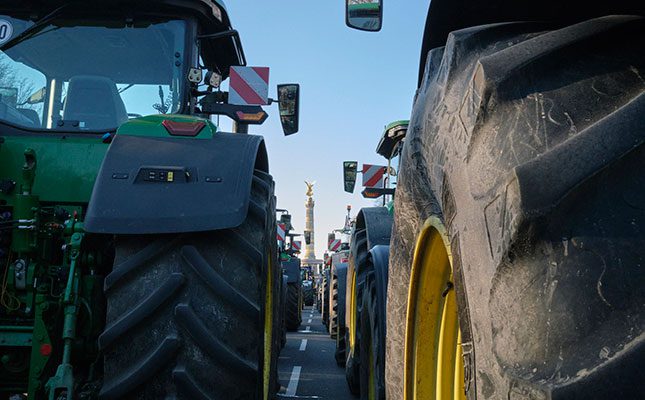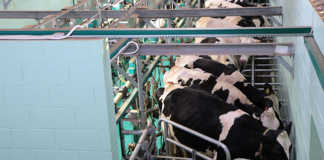
The farmers have been protesting against tax increases, with central avenues in Berlin being blockaded by trucks and tractors in what commentators are describing as a flashpoint for anti-government anger.
Reuters reported that large groups of farmers, wrapped up warmly against the cold and waving German flags, held up banners with slogans such as: “Without farmers, no future”.
Addressing the crowd, Linder said: “I can’t promise you more state aid from the federal budget, but we can fight together for you to enjoy more freedom and respect for your work.”
According to Reuters, the protests increased pressure on Chancellor Olaf Scholz’s coalition after the German government was forced to freeze major spending pledges aimed at green initiatives and industry support.
This followed a ruling by the country’s constitutional court in November last year that the government’s decision to re-allocate €60 billion (about R1,2 trillion) of unused debt from the COVID-19 pandemic era to its climate and transformation fund was unconstitutional.
According to Reuters, this ruling threw budget negotiations into disarray, with the three-way ruling coalition’s popularity slumping as Europe’s largest economy teetered on the brink of another recession.
In an effort to balance the budget, the government then announced plans to phase out the tax subsidy on agricultural diesel. This decision was, however, met with a major backlash from the agriculture industry, resulting in the government agreeing to maintain a tax rebate on new agricultural vehicles, and spreading the scrapping of the agricultural diesel subsidy over several years.
Backed by conservative opposition and far-right parties, the industry rejected this offer, saying it was “not enough”, Reuters reported.
Following a later meeting with protest leaders in parliament on Monday, legislators from the coalition undertook to soon announce a new plan that would lower costs for farmers, while making their sector “sustainable”.
Protests by farmers across Europe in recent months were being fuelled by complaints ranging from high energy costs to competition from Ukrainian grain.
Farmers in Romania also protested near border crossings with Ukraine and near large cities across Romania on Monday in support of ongoing negotiations with that country’s government about the high cost of diesel, high insurance rates, measures taken by the EU to protect the environment, and the negative impact of imported agricultural goods from Ukraine on the domestic market.
In Germany, the parties in the governing coalition were reportedly not able to agree on how best to meet farmers’ demands. According to Reuters, German Agriculture Minister Cem Ozdemir, from the Green Party, had suggested financial rewards for humane animal husbandry, while some members of the Social Democrat party wanted to offer higher prices for produce, and Lindner’s Free Democrats wanted to cut administrative overhead costs.












